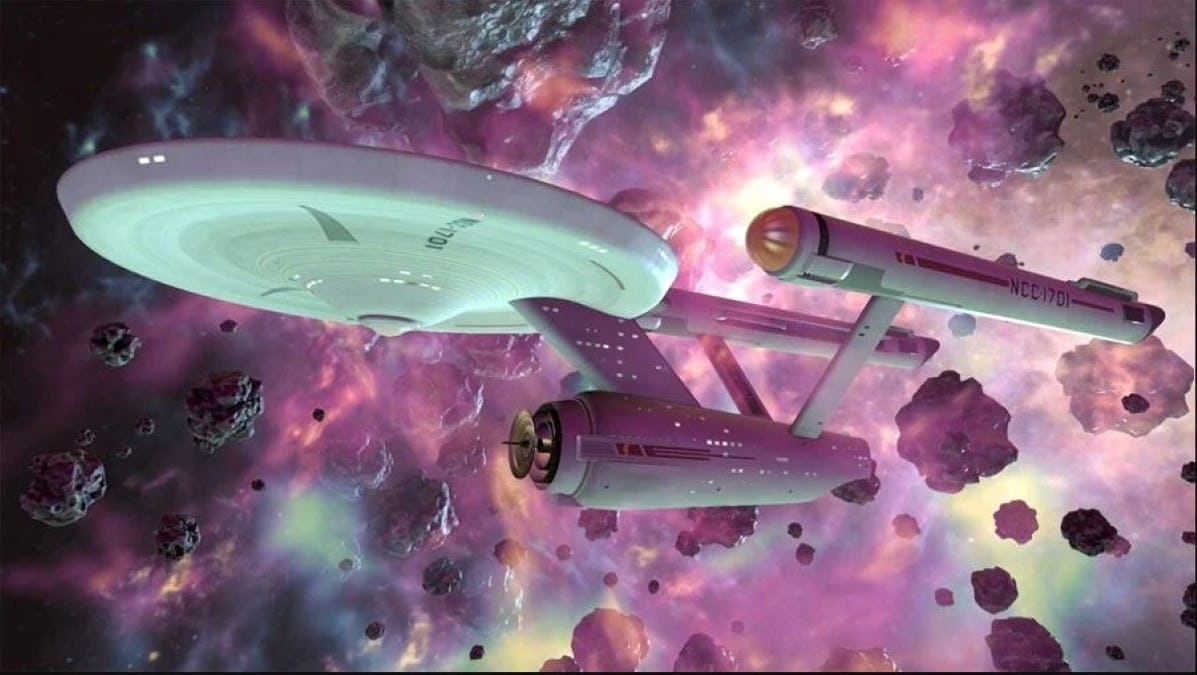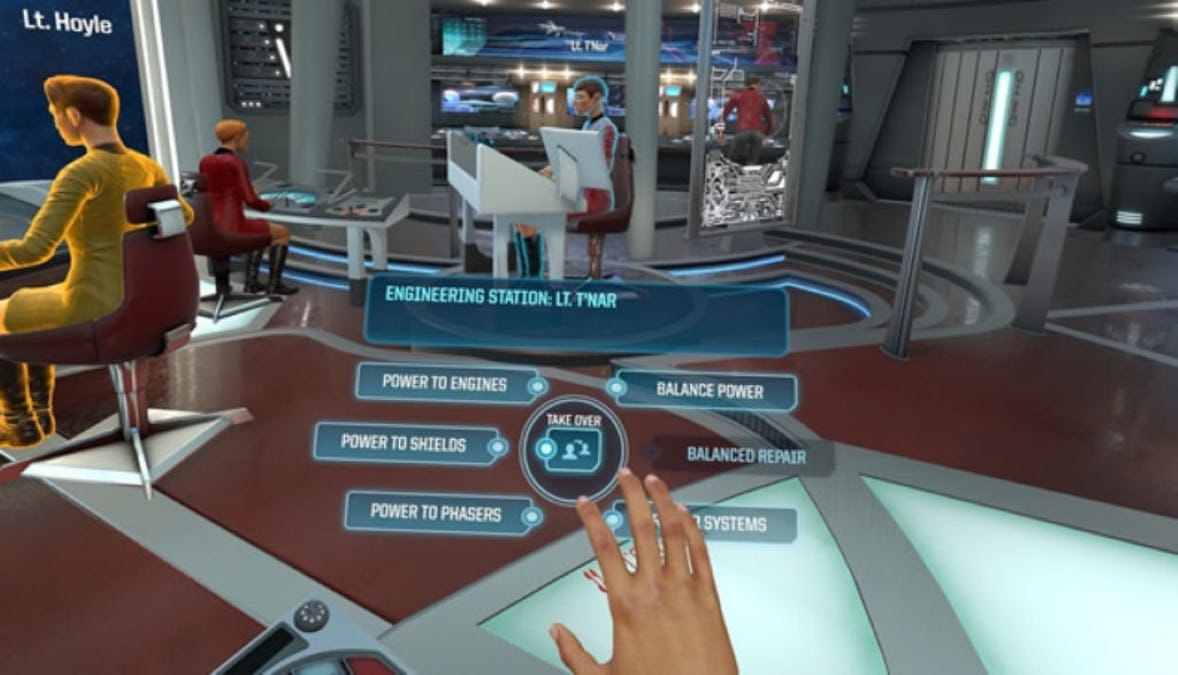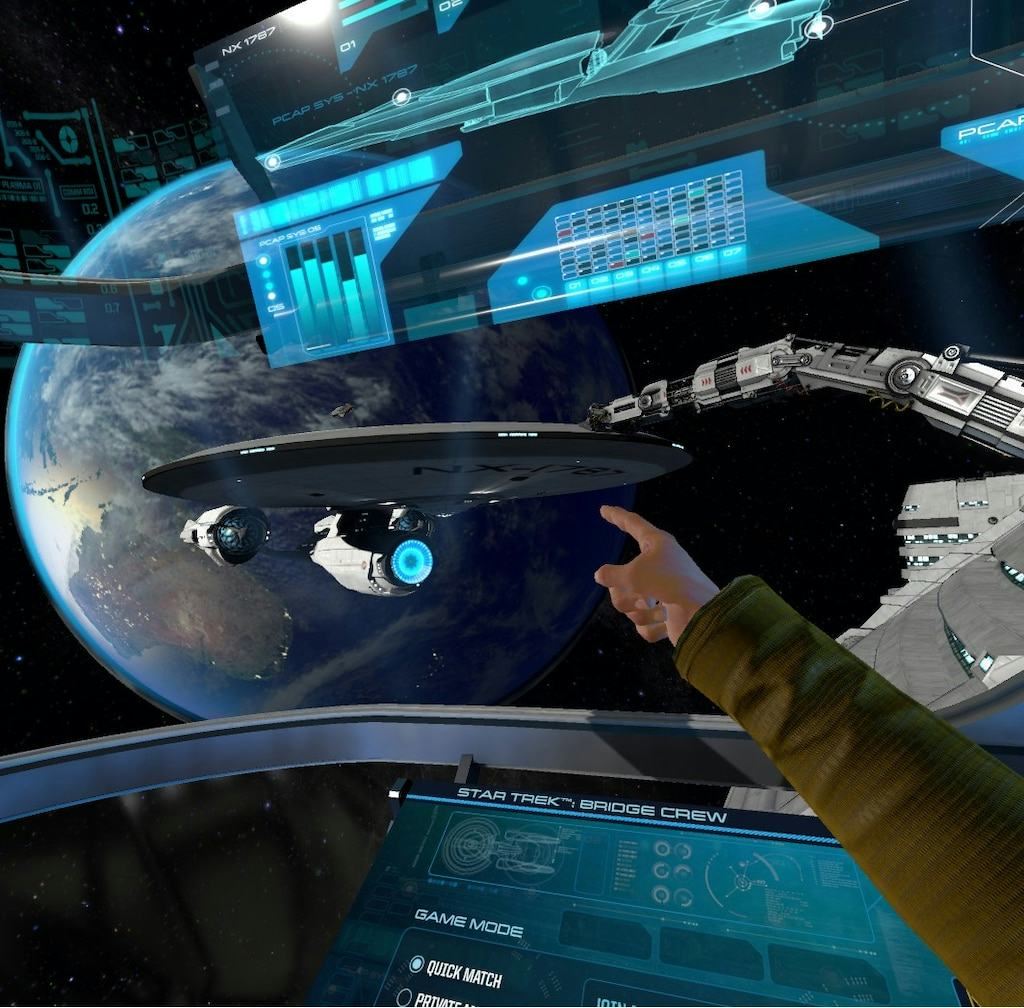
Color is a funny thing. It doesn't exist until it's seen. Many ancient cultures seem to lack a word for “blue,” and it’s speculated people simply couldn't see it. So naturally, when color TV was invented, its creators at RCA wanted to show what it could do.
The problem was all the popular shows of the day were designed to look great in black and white — color TV was the stuff of science fiction. So they needed a new show. They needed Star Trek. Festooned with technicolor buttons, lights, and alien locales, the sci-fi icon got network support, in part, because it made RCA (a big advertiser) very happy. The show's legacy is tied to gadgets.
So the inclusion of Star Trek Bridge Crew in the PS Plus lineup as both a PS4/PS5 title and a PSVR title makes perfect sense. It first launched as a VR experience, offering players the chance to sit on board the Enterprise and command a crew across the final frontier. It’s the best Star Trek game to date, offering the escapist fantasy fans of the show — and anyone with a hankering for space — has long dreamed about.
There are a few caveats to the Star Trek: Bridge Crew experience. First and foremost, it’s best played in a group. Communication is the underlying mechanic to everything and players must talk to each other in order to achieve their goals, and the main job of the captain is to keep that conversation going. It’s possible to play solo, but it's widely regarded as the inferior way to experience this game. Still, if you’re a fan of the franchise, there’s certainly joy to be had in going it alone in the captain’s chair just for the experience.
The second caveat is that it's a stationary game. You’re not mobile, walking about the deck and beaming down to new planets to boldly go engage with new life forms. You’re on the bridge. You’re part of the crew. You sit in a chair and spend the game manipulating the various switches and doodads that control one of three different stations, unless you’re the captain. Then you’re the one responsible for making all the stations work together.

First up, the helm, home of your Sulus and O’Briens. The chief responsibility of the helm officer is to pilot the ship, which means plotting the navigation, locating impulse and warp points, and controlling the throttle. You’ll have access to different maps to assist you as you figure out where exactly the ship needs to go. You’ll also be the one driving during combat so read up on your evasive maneuvers. Next is tactical. You’re running the phasers, torpedos, shields, and scanners. You’ll be the one locating enemy threats, and the one targeting them for annihilation. You also run point on system intrusions to disable different stations on enemy ships. It’s an exciting station but you can’t go cowboy and fire away. Coordination is key.
This is where engineering comes into play. If you’re the chief engineer you control the power. It sounds more fun than it is because there are often competing priorities. Do you move power to the shields to absorb an incoming blast? Or send it to the phasers to blast the enemy into smithereens while they’re vulnerable? Everyone is going to count on you to keep their stations running. Then there’s the captain. Sitting in the captain’s chair means you’re the one who needs to keep everyone updated on mission objectives, answer incoming communications, and run the main view screen on the ship. In the event you’re not playing with a full session, the captain can also switch over to any station run by an NPC and take it over if need be.

The best, and arguably worst, thing about Star Trek: Bridge Crew is that it sounds more complicated than it is. Once you get a feel for the controls of whatever platform/station you’re using, the gameplay can start to feel thin after a few missions.
This isn’t an Elden Ring experience that’s going to take up dozens of hours of your life. Instead, this is a fast-casual game that is an absolute blast with friends, especially if you’ve been geeking out to all the good Trek content lately.







